Damage to Ecology in Ukraine Caused by Russia’s Aggression is a War Crime – EU Project Pravo-Justice Expert at the United for Justice Conference in Lviv
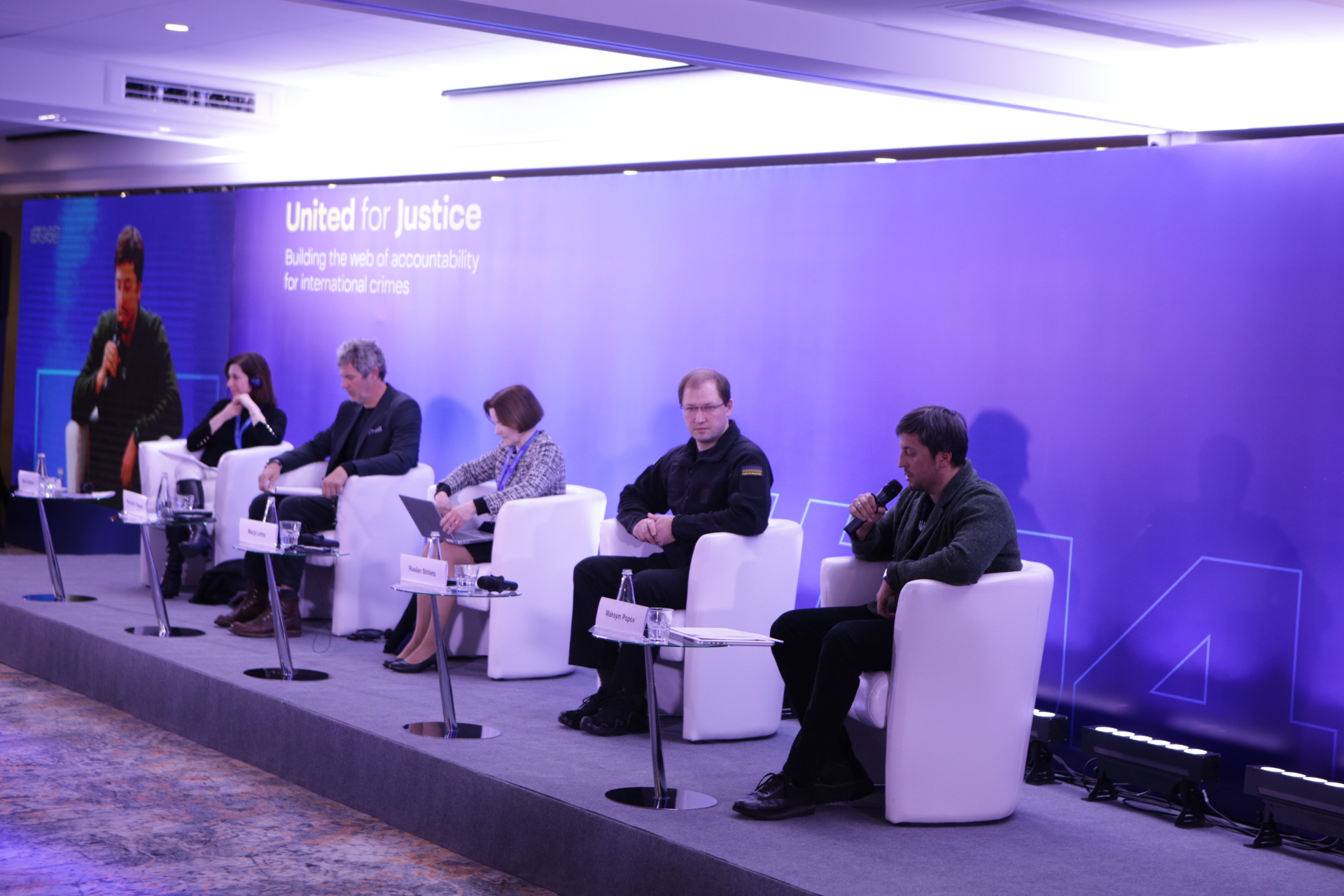
The scale of the environmental disaster caused by Russia’s aggression against Ukraine makes us state that it is necessary to change approaches to assessing the consequences hostilities cause for the environment at the international level. National justice mechanisms currently in place make it possible to bring the aggressor to justice. This issue was deliberated on by the participants of the panel “Prosecution of war crimes against the environment” on the last day of the United for Justice international conference in Lviv.
EU Project Pravo-Justice actively participated in preparing for this representative forum, and also took part in its core activities, including discussing the peculiarities and prospects of prosecuting the Russian Federation for causing damage to the ecology in Ukraine because of Russian military’s actions.
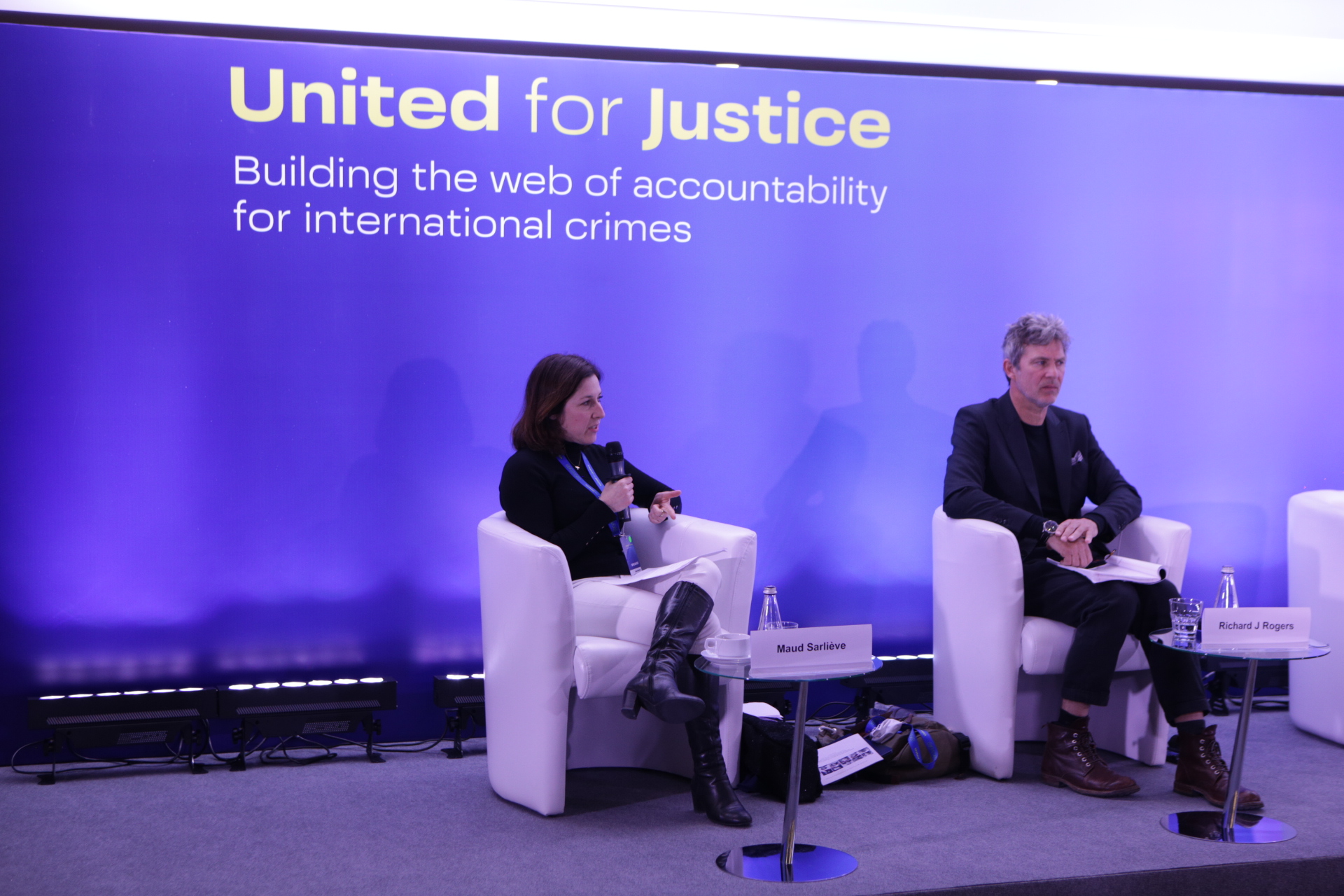
As Maud Sarliève, EU Project Pravo-Justice international expert noted, “the right to a clean environment is one of the fundamental human rights”, therefore, when the aggressor is destroying the environment of the country it attacked, it is a brutal violation of fundamental human rights and a war crime.
Ruslan Strilets, Minister of Environmental Protection and Natural Resources of Ukraine, provided information on the scale of damage already caused to Ukrainian environment because of Russian aggression. In many cases, he said, we are dealing with irreparable damage. According to Ruslan Strilets, about 600 fauna species and 750 flora species are endangered, including red list species; half a million hectares of forest, 10 national natural parks, 8 nature reserves, 2 biosphere reserves remain under occupation. Moreover, Russian invaders control 132 mineral deposits, and, during the year of the war, it caused losses of the mining industry amounting to UAH 7.76 trillion.
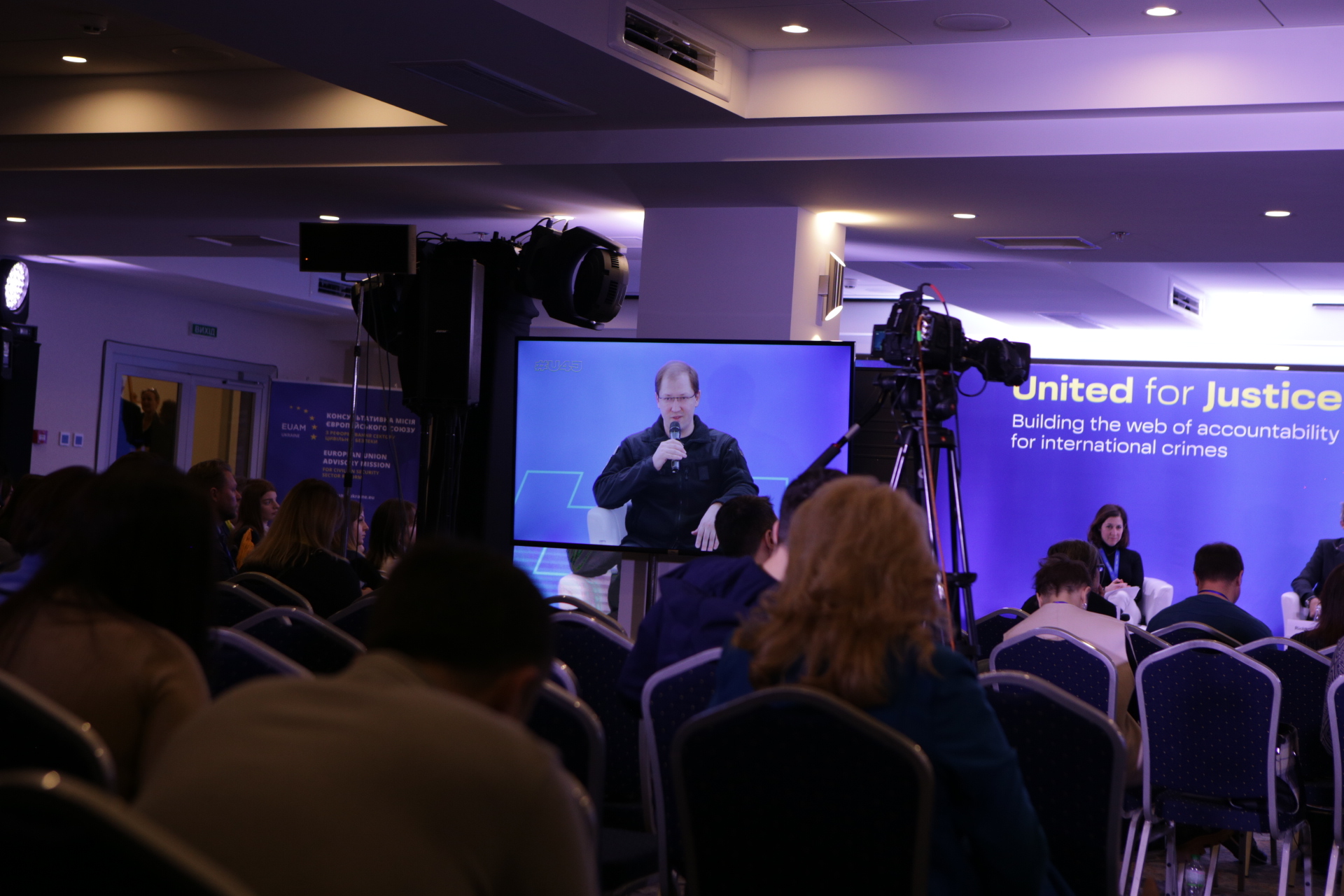
“We developed a new methodology together with our environmental inspection. Environmental damages already amount to UAH 2 trillion. It covers land pollution, air and water pollution, burned forests, and destroyed natural resources. Forests suffer the most. We suffer colossal losses because of Russian aggression. Almost 3 million hectares of forest were damaged. We diligently record the crimes the Russians committed against the environment in Ukraine and inform the whole world about them. We have to fulfil our task and demand reparations from Russia for the destruction and damage they caused,” said Ruslan Strilets.
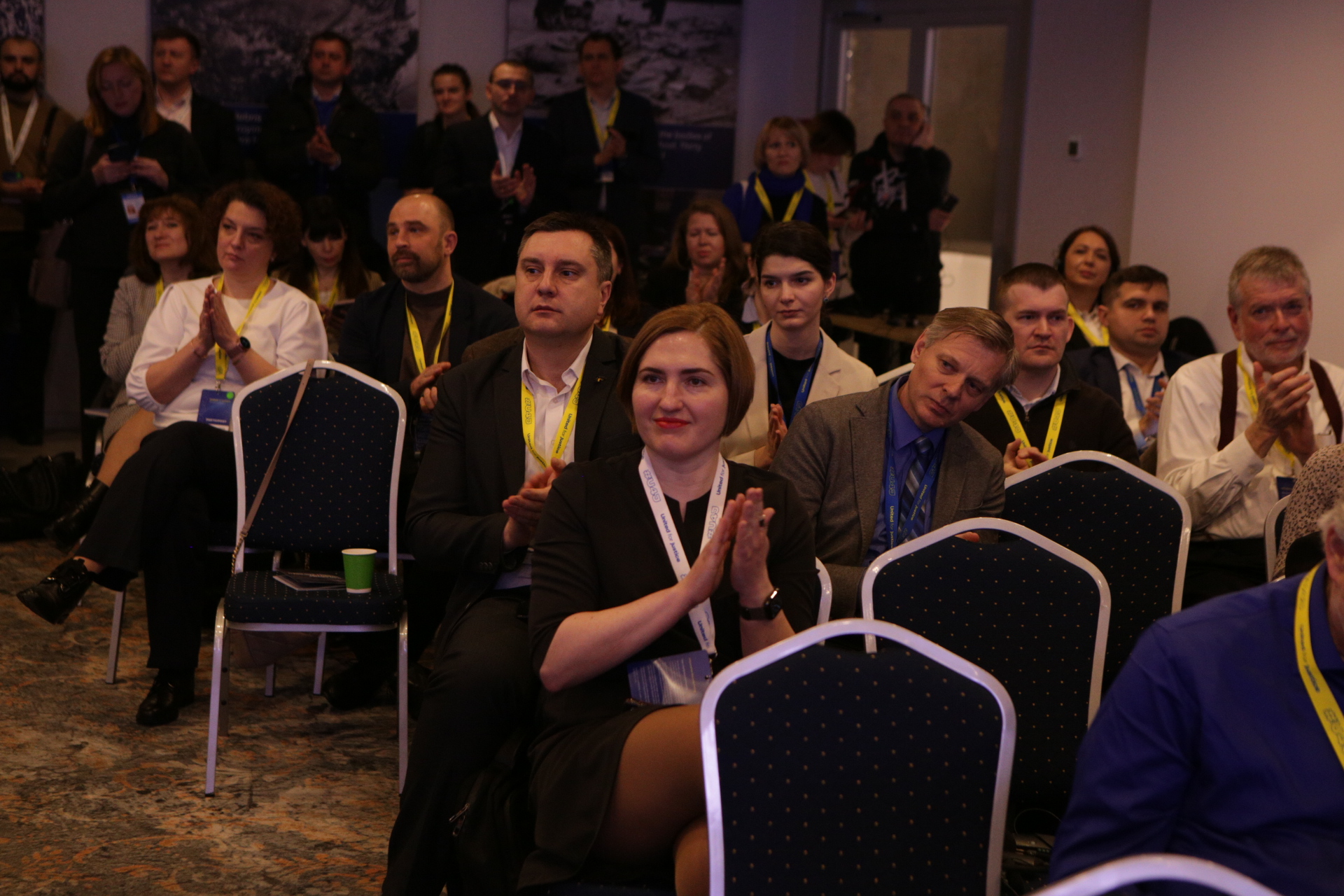
According to Maud Sarliève, Pravo-Justic Project expert, the devastating consequences the Russian army’s actions caused to ecology in Ukraine will be long-lasting and will threaten people’s health.
“Investigating and examining such damage will reveal the nature and extent of what happened. This will be the first step to restore the environment, receive reparations and find some kind of solution... For example, attacks on infrastructure, in particular energy and industrial, cause harmful emissions into water, land, and air. Investigations should establish the nature, duration and impact these emissions, oil spills in particular, have on biodiversity,” said Maud Sarliève.
Ruslan Strilets, Minister for the Environment, informed that his Ministry cooperates with other Ukrainian authorities in investigating and documenting the destructive consequences of Russian aggression for the nature of Ukraine.
“Our Ministry of Environmental Protection has arrangements with the Ministry of Internal Affairs, the Prosecutor General’s Office, the Security Service of Ukraine, as well as with a number of other agencies. We share information. Our key goal is to collect all cases in one place and properly record them, duly calculate all the negative consequences of all the damage caused to the environment,” said Ruslan Strilets.
Maud Sarliève, Pravo-Justice Project expert, believes that the war in Ukraine can become a precedent that will make the international legal community pay more attention to such a category of crimes as crimes against ecology.
“War crimes affecting the environment are rarely tried by international and national courts. And, unfortunately, right now the conditions have been created to establish a historical precedent that could function as a preventive mechanism for further conflicts and possibly prevent environmental destruction in other conflicts,” said Maud Sarliève.
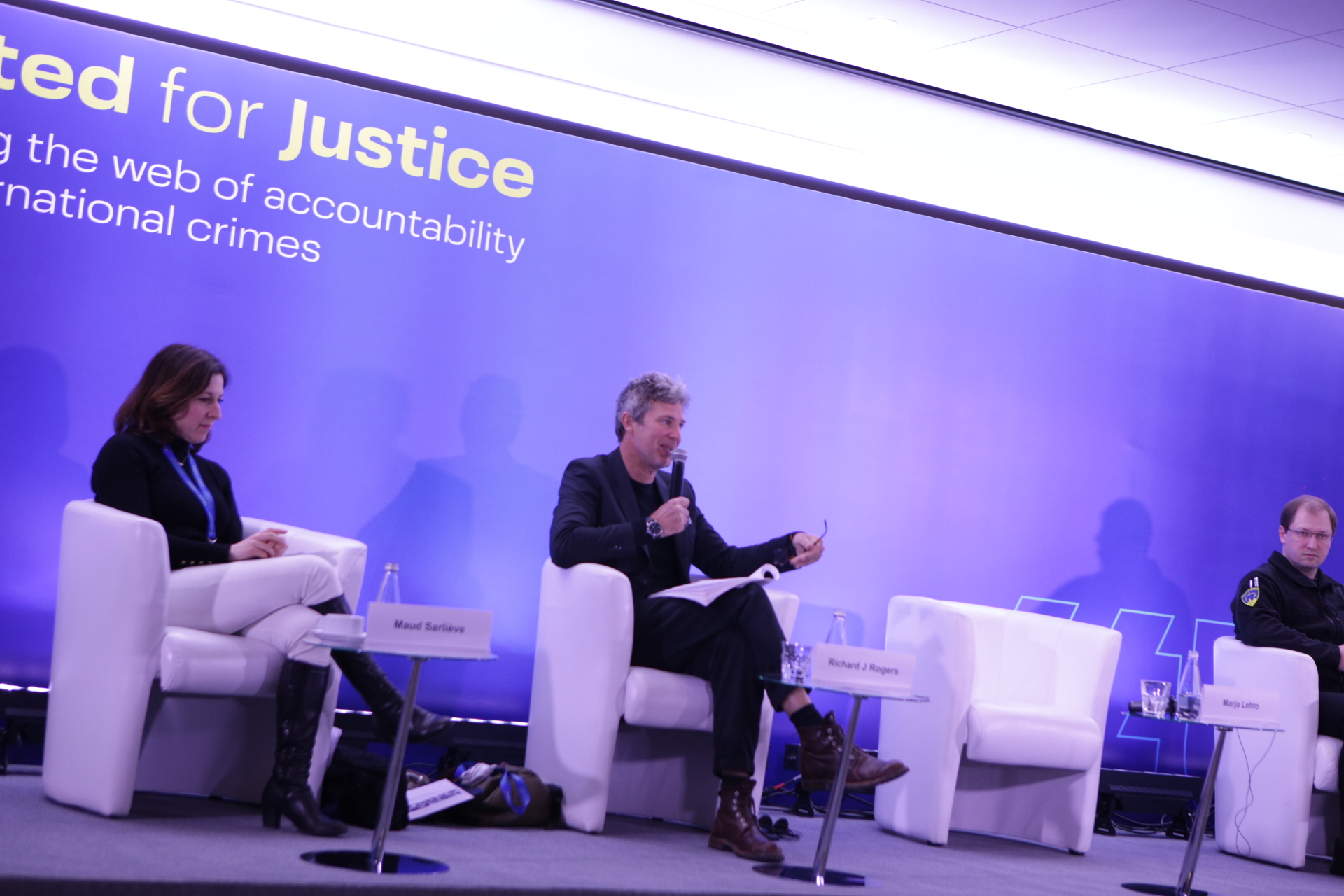
The fact that crimes against the environment do not fall under the jurisdiction of the International Criminal Court was noted by Richard Rogers, Executive Director of NGO Climate Counsel.
“The Nuremberg Tribunal did not consider any such cases. Neither did International Criminal Court consider cases related to environmental damage. And it’s not because there were no potential cases or evidence and not because there are no laws that could be used. This is simply because the environment was not prioritized by prosecutors. Perhaps it is because of an incomplete vision of the problem or lack of creative approach. The fact that there are no precedents to be followed definitely makes Ukrainian prosecutors’ work more complicated,” Richard Rogers believes.
At the same time, he noted that the environment can be considered as a civilian object in international law.
Ecocide is defined as a criminal act in national legislation, in particular, in Ukrainian legislation. This also opens up opportunities for prosecuting Russian aggressors for ecocide at the level of different countries since the damage to the environment is long-lasting and transborder, and the ecology of neighbouring countries also suffers from the consequences of the war in Ukraine.
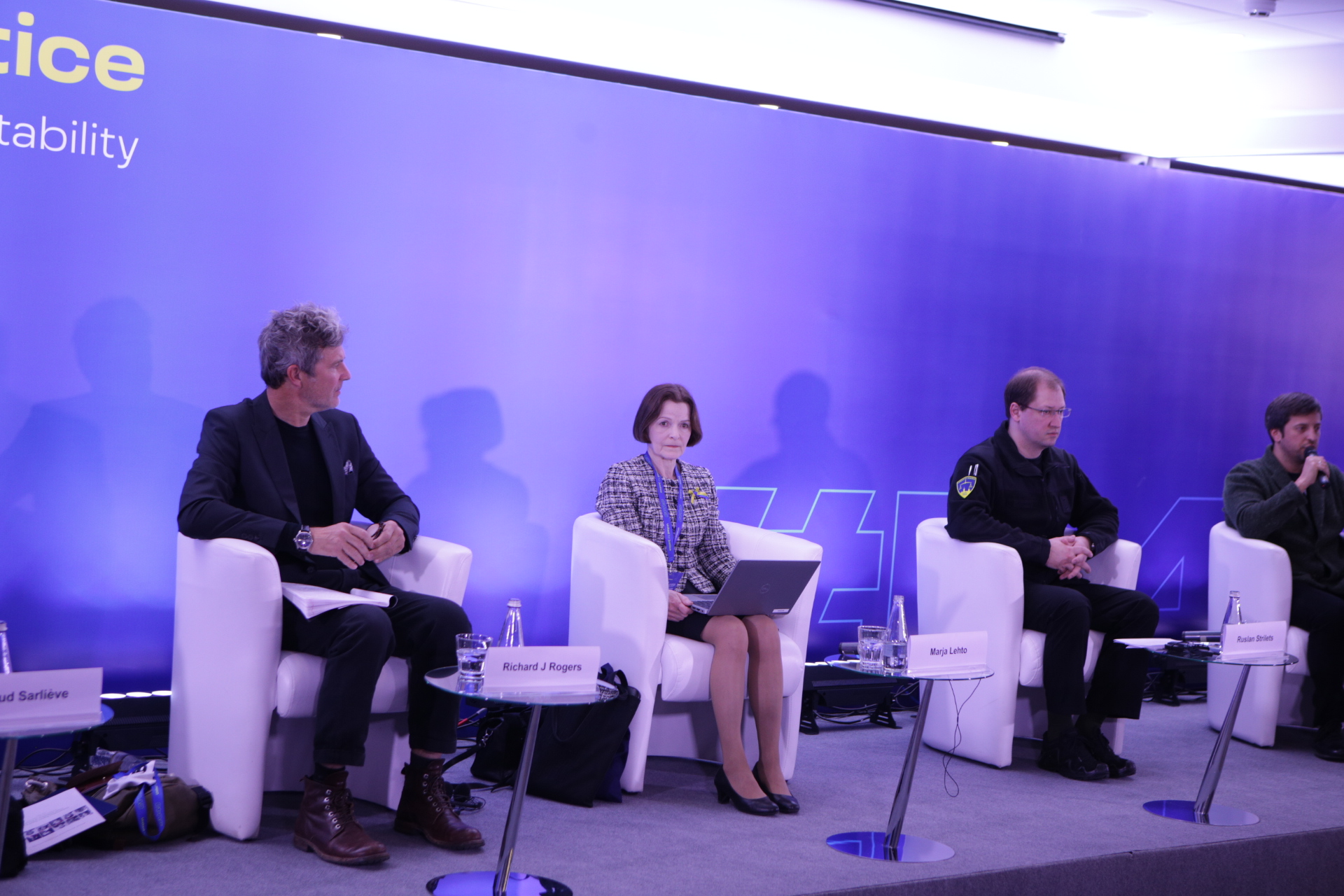
Marja Lehto, senior expert on international law at the Ministry of Foreign Affairs of Finland, believes that this can be one of the core principles when initiating cases for causing damage to the environment because of the aggressor state’s military actions. Moreover, large-scale environmental damage can be considered a crime against humanity or an element of genocide.
“Crimes falling under ICC jurisdiction can also lead to destruction of the environment. This makes it possible to consider these cases in the International Criminal Court. However, Ukrainian national courts obviously have to play a leading role here, as well as the Ukrainian institutions investigating these cases at the national level. We know that criminal proceedings are now being prepared by third countries as well,” noted Marja Lehto.
The panellists agreed that international law as it stands now is not sufficiently adapted to prosecute war crimes resulting in environmental destruction. Respective amendments to the international legal framework may take years to introduce, while retribution for ecocide must be inevitable right now, so it might be feasible to use national legal resources and, where possible, based on the body of evidence, qualify crimes against the environment as international crimes subject to international criminal jurisdiction.

Maksym Popov, Advisor to the Prosecutor General of Ukraine who moderated this discussion panel, concluded that all the stakeholders involved at the national level, including the Prosecutor General’s Office, pre-trial investigation bodies, the Ministry of Environmental Protection and Natural Resources of Ukraine, the State Environmental Inspection of Ukraine, with the support from international partners have already done a lot in this regard, but even more needs to be done to set a precedent for bringing perpetrators who committed war crimes against the environment to justice. The ultimate goal is to make sure that the environment is no longer a silent victim of war.